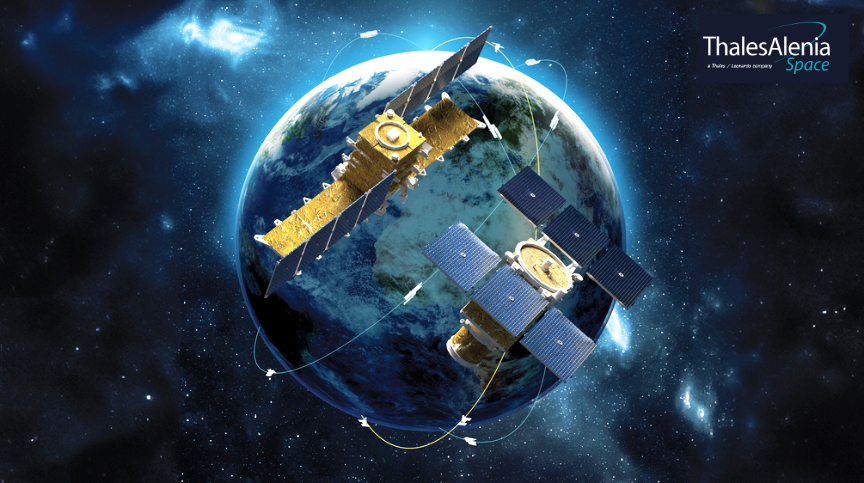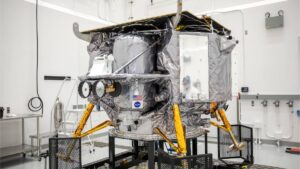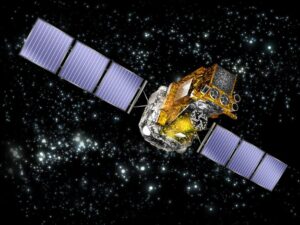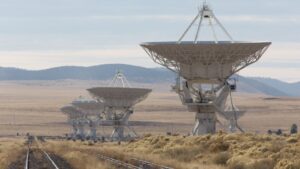Thales Alenia Space, a joint venture between Thales (67%) and Leonardo (33%), has signed a 107 million euros contract with the European Space Agency (ESA) for the supply of 6 additional radar-based satellites dedicated to the Italian Earth observation constellation, IRIDE.
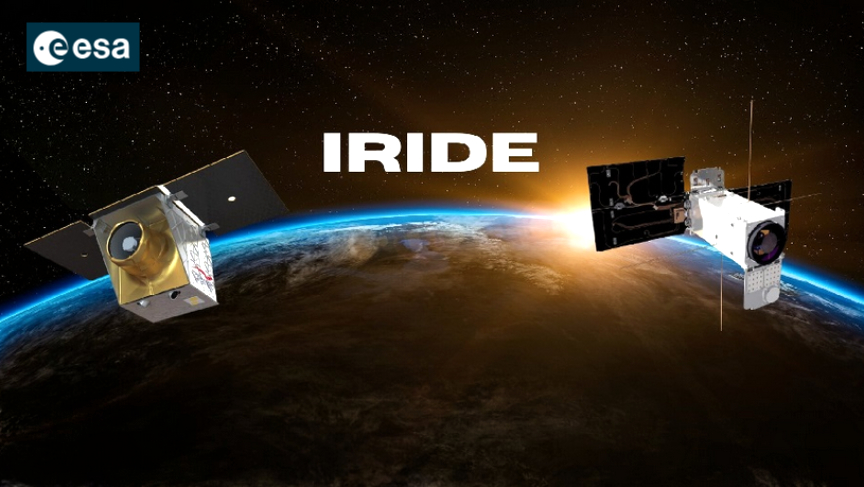
This second batch of satellites, as the previous batch of six, will rely on the innovative and scalable NIMBUS (New Italian Micro Bus) platform. Built by Thales Alenia Space, the high-performance NIMBUS will be produced rapidly and is designed for high-revisit and high-capacity constellations in addition to very high throughput.
For the Italian Earth Observation Constellation IRIDE, Thales Alenia Space will build a total of 13 satellites: 12 small-sized satellites based on SAR (Synthetic Aperture Radar) technology and 1 satellite based on optical technology.
IRIDE is one of the most important European space programs in the field of Earth Observation. It is a government project funded as part of Italy’s National Recovery and Resilience Plan (PNRR), complemented by funding from the National Integration Plan (PNC). IRIDE is a constellation of satellites, operational by 2026, managed by the European Space Agency (ESA) in conjunction with the Italian Space Agency (ASI).
IRIDE features a hybrid constellation of different satellites with dedicated EO sensors; this end-to-end system comprises a series of LEO satellite sub-constellations, ground infrastructures (downstream) and services dedicated to the Italian Public Administration.
Thales Alenia Space will contribute to the achievement of this innovative constellation of satellites that feature sophisticated operating modes to support high revisit rates, providing data that can be integrated with that from other existing or future programs and infrastructures, including COSMO-SkyMed Second Generation and Prisma, as well as Europe’s vast Copernicus Earth observation and protection program.

Thales Alenia Space will further contribute to the constellation by supplying an optical satellite with a performance tailored to its needs. Built on the platform NIMBUS, the optical payload is developed by the Italian companies Media Lario and TSD-space, specialized in the creation of instruments and electronics for space.
The satellites will be built in Italy under the responsibility of Thales Alenia Space and thanks to the contribution of the entire supply chain of SMEs in the space sector. They will provide valuable data not only to researchers studying the evolution of the environmental conditions of Italy but also to the Civil Protection and other Public Administrations to protect coasts, monitor critical infrastructures, air quality and weather conditions. IRIDE’s data will be of paramount importance. This data will allow the development of commercial applications by start-ups, small and medium-sized enterprises and industries in the geospatial sector.
“I would like to thank the European and Italian Space Agencies for once again entrusting Thales Alenia Space’s competences and expertise,” said Giampiero Di Paolo, Senior Vice President Observation, Exploration and Navigation for Thales Alenia Space. “Leveraging our experience onboard major Earth observation programs, we are ready to reinforce our capabilities in the small satellite segment. Based on a series of sensing instruments and technologies, the IRIDE constellation will range from microwave imaging with radar sensors to optical imaging at various spatial resolutions and in different frequency ranges, making it a cutting-edge space program in Earth Observation. The radar technology on board this program will be a crucial pillar of our ALL-IN-ONE Earth observation solution, which effectively combines optical and radar small satellites to ensure high revisit frequency and control for near real-time monitoring.”

